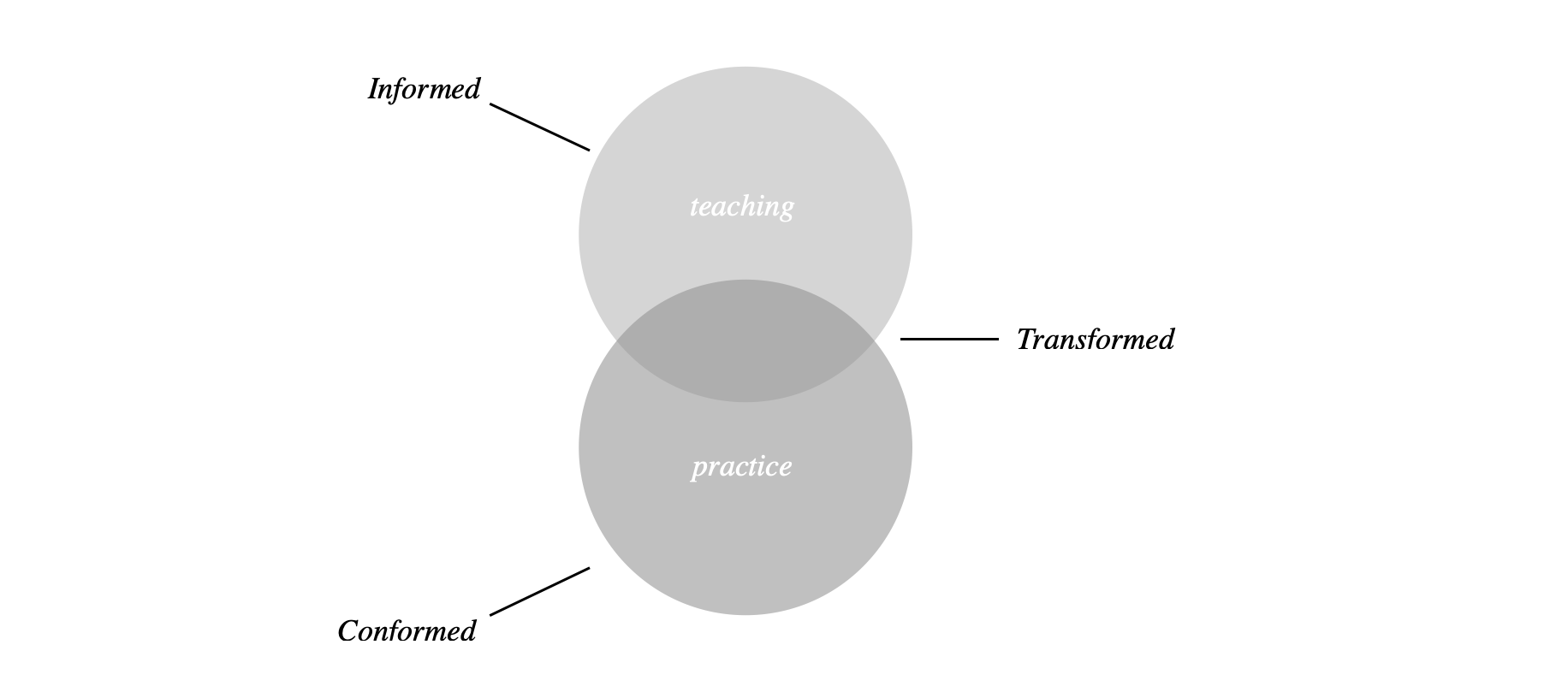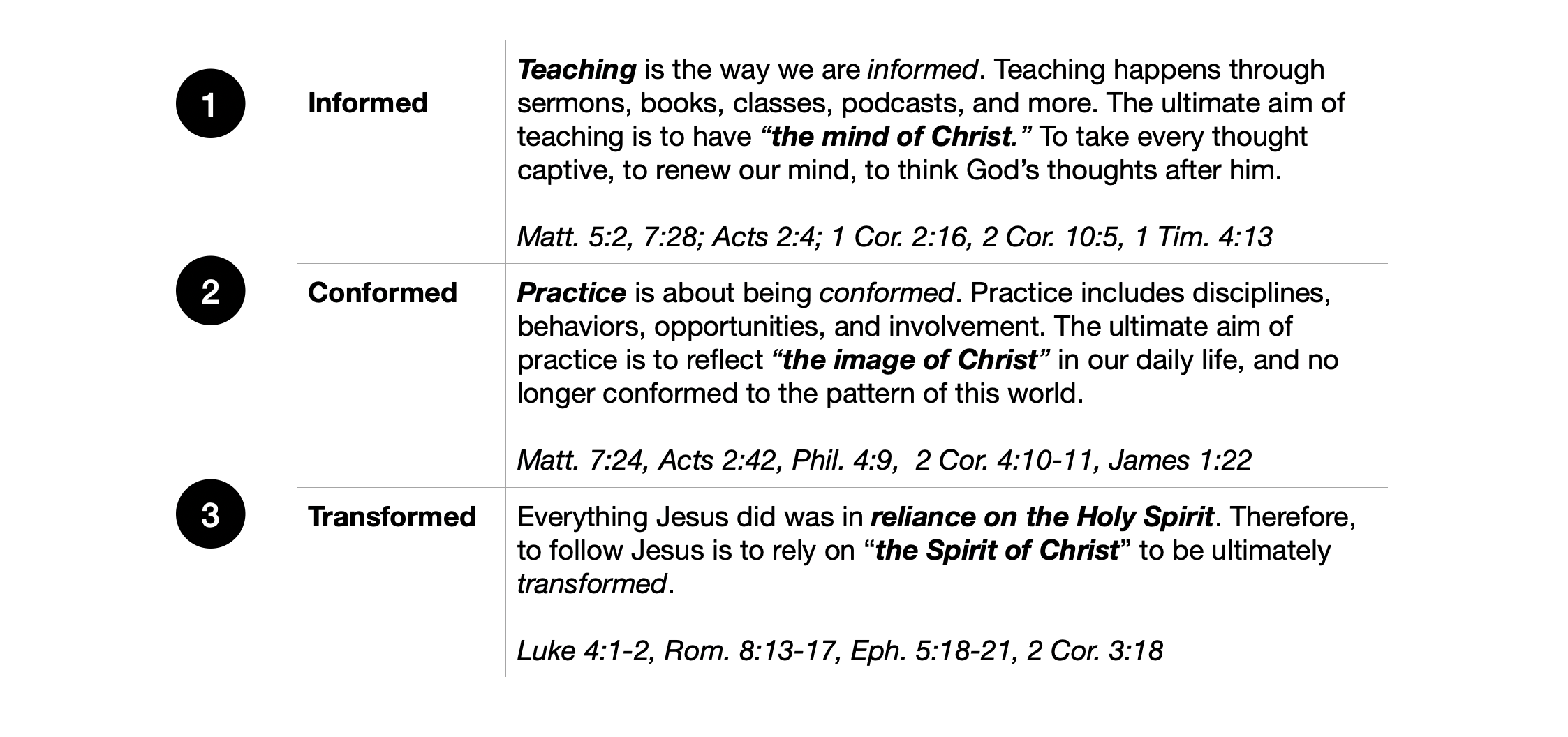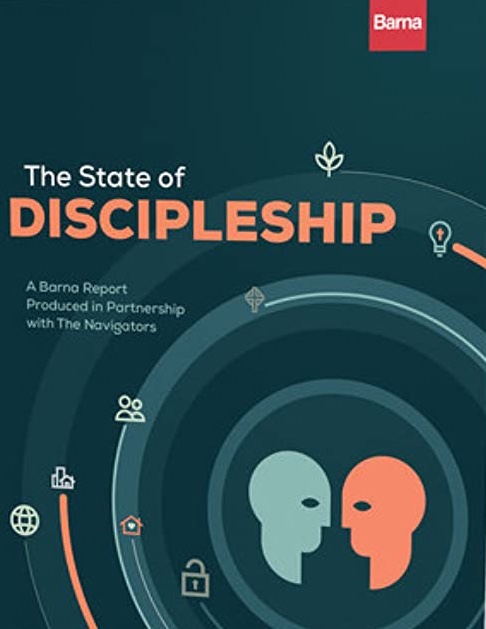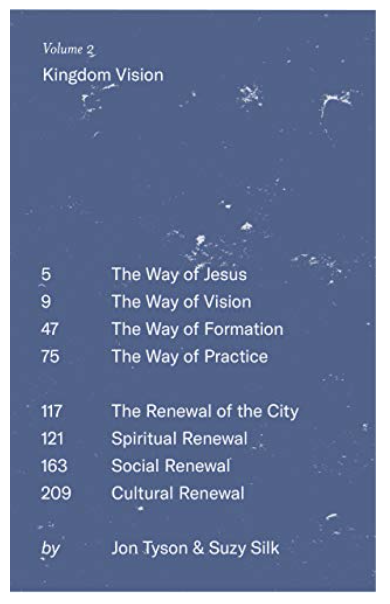What is formation?
FORMATION VISION
Jesus' teaching and ministry was focused on "the kingdom of God." It was the one thing Jesus talked about more than anything else. Discipleship is about being formed for that vision. Formation is both a process and a framework for exploring what it means to become the kind of people who live out Jesus’ vision of the kingdom of God in all things.
"The kingdom is not another thing on a long list of priorities; it is the framework determining the priorities."
– Jeremy Treat
Formation Process
The process for Formation focuses on two particular things: (1) teaching and (2) practice. The purpose of teaching is to be in-formed (to have "the mind of Christ") and the goal of practice is to be con-formed (to the "image of Christ"). But there is a third part as well – both teaching and practice are incomplete apart from being trans-formed (in reliance on "the Spirit of Christ").


Formation Framework
Formation is not a plan. Formation is not a program. Formation is a framework. There are four areas in the Formation Framework in which to apply the Formation Process (of teaching and practice in reliance on the Holy Spirit). Each area is vital for living out Jesus’ vision of the Kingdom of God in all things.
Descriptions
1 The Story of God
We are formed by the Story of God
God is telling one story from Genesis to Revelation which culminates in the person and work of Jesus. The story is about a coming King and his kingdom – and is the true story of the world. Being formed by the “Story of God” means knowing the story and spending time reflecting on it for the meaning of our lives. It is the story we live in and the story we live out. (cf. John 5:39, Luke 24:26; Mark 1:15; Deuteronomy 6:6-9; Galatians 4:4; Acts 19:8).
2 The Worship of God
We are formed in the Worship of God
God is the creator of all things and worthy of all glory and honor. To worship God is to love God with all that we are (heart, soul, mind, and strength) and all that we have (time, treasure, talent). To worship God is to acknowledge him in all our ways, recognizing that our lives are constantly lived in his presence. Being formed in the “Worship of God” makes us both recipients and responders of God’s grace as he meets us in worship (cf. John 4:22-24; John 14:15; Romans 12:1; Revelation 4:11; Matthew 22:37-38; Proverbs 3:6).
3 The People of God
We are formed as the People of God.
God is concerned with forming not just persons, but a people. Not simply individuals, but a community. In the New Testament, the context for formation is the local church. The metaphors used to describe the church (as members of a body, living stones of a temple, etc.) demonstrate that individual formation is inseparable from being formed as the “People of God.” Each individual church is an outpost and foretaste of the kingdom of God (cf. Isaiah 43:21; John 13:35; 1 Peter 2:4-5; Acts 24:14; Hebrews 10:23-25; Romans 12:4-5; Revelation 21:3).
4 The Mission of God
We are formed for the Mission of God
God has been on a mission since the creation of the world. His mission has been about expanding his unique presence through the commissioning representatives who serve in word and deed. Being formed for the “Mission of God” means seeing our lives in service to God’s plan for creation and reconciliation in our world, our workplaces, and our neighborhoods (cf. Genesis 1:28; Matthew 28:18-20; Colossians 3:23; 1 Thessalonians 4:11-12; Acts 17:26-27; Matthew 5:16).
Recommended Reading
If you would like to grow more in your discipleship, check out some recommended reading on the goal of discipleship, formation, and the Kingdom of God.
Other books and resources:
- Transforming Disciples: Making Disciples a Few at a Time (Greg Ogden)
- Transformational Discipleship: How People Really Grow (Greiger, Kelley, Nation)
- Gospel-Centered Discipleship (Jonathan Dodson)
- You Are What You Love: The Spiritual Power of Habit (James KA Smith)
- Trinitarian Formation (J. Chase Davis)
- Disciple: Getting Your Identity from Jesus (Bill Clem)
- Go: Returning Discipleship to the Front Line of Faith (Preston Sprinkle)
- Practicing the Way of Jesus: Life Together in the Kingdom of God (Mark Scandrette)











